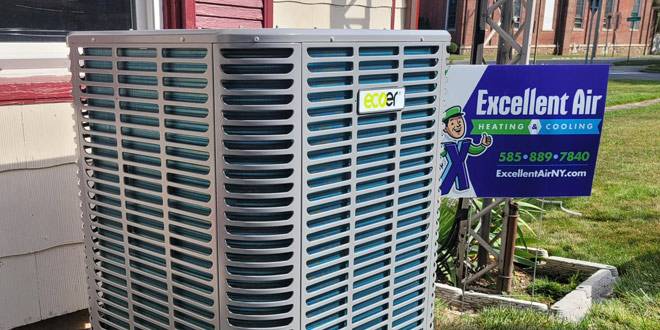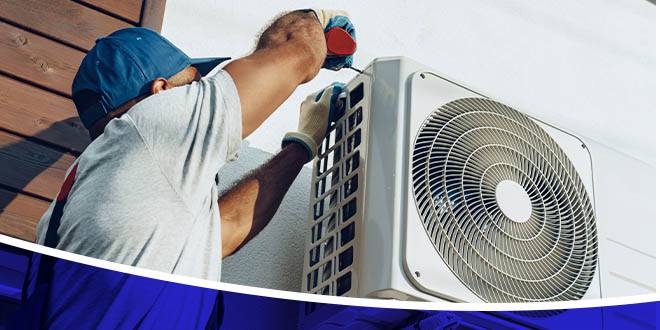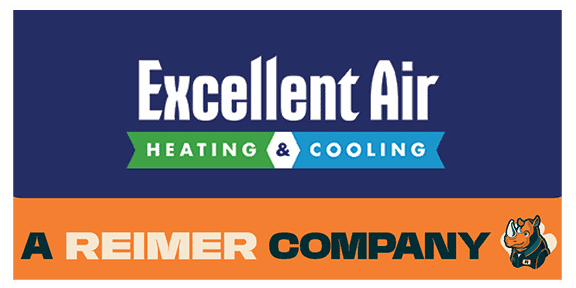
Choosing the right heating system for your home is a crucial decision that impacts your comfort, energy efficiency, and utility costs. Heat pumps have become a popular choice for many homeowners due to their ability to both heat and cool your home efficiently. However, selecting the right type of heat pump—air source or geothermal—can be challenging. In this blog, we’ll explore the differences between these two types of heat pumps, their benefits, and help you determine which one is the best fit for your home.
What is an Air Source Heat Pump?
An air source heat pump (ASHP) is a versatile and energy-efficient system that extracts heat from the outside air and transfers it indoors to heat your home. During warmer months, the process can be reversed to cool your home by removing heat from the inside and releasing it outdoors.
How It Works:
- Heating Mode: The ASHP absorbs heat from the outside air using a refrigerant. This heat is then compressed, raising its temperature, and transferred inside to warm your home.
- Cooling Mode: The system works in reverse, extracting heat from indoor air and releasing it outside, effectively cooling your home.
Key Benefits and Features:
- Energy Efficiency: ASHPs can deliver up to three times more heat energy than the electrical energy they consume, making them highly efficient.
- Versatility: Provides both heating and cooling, eliminating the need for separate systems.
- Ease of Installation: Typically easier and less expensive to install compared to geothermal systems.
- Low Carbon Footprint: Reduces greenhouse gas emissions by using renewable energy from the air.
Ideal Scenarios for Use:
- Mild to Moderate Climates: ASHPs are particularly effective in regions where temperatures do not frequently drop below freezing.
- Homes without Extensive Yard Space: Since ASHPs do not require underground installation, they are ideal for properties with limited outdoor space.
For more details about our air conditioning services, check out our Air Conditioning Services page.

What is a Geothermal Heat Pump?
A geothermal heat pump (GHP), also known as a ground-source heat pump, leverages the consistent temperatures found underground to heat and cool your home. This system is highly efficient and environmentally friendly, utilizing the earth’s natural heat to provide year-round comfort.
How It Works:
- Heating Mode: The GHP extracts heat from the ground through a series of underground pipes filled with a water-based solution. This heat is then transferred into your home.
- Cooling Mode: During warmer months, the system reverses the process, removing heat from your home and transferring it back into the ground.
Key Benefits and Features:
- High Efficiency: GHPs are among the most efficient heating and cooling systems available, often achieving efficiencies of 300-600%.
- Long Lifespan: Geothermal systems have a longer lifespan compared to air source heat pumps, with underground components lasting up to 50 years.
- Low Operating Costs: Due to their high efficiency, GHPs offer significant savings on energy bills over time.
- Environmentally Friendly: Uses renewable energy from the earth, reducing reliance on fossil fuels and lowering greenhouse gas emissions.
Ideal Scenarios for Use:
- Cold Climates: GHPs are highly effective in colder regions where air source heat pumps might struggle to extract sufficient heat.
- Large Properties: Requires sufficient outdoor space for the installation of underground pipes, making it ideal for homes with larger yards.
For more information on our cooling solutions, explore our AC Repair and AC Maintenance services.

Comparing Air Source and Geothermal Heat Pumps
When choosing between an air source heat pump (ASHP) and a geothermal heat pump (GHP), it’s important to consider various factors that can influence their performance, cost, and suitability for your home.
Efficiency:
- Air Source Heat Pumps: ASHPs are highly efficient, with a typical efficiency range of 200-300%. However, their efficiency can decrease in extremely cold temperatures.
- Geothermal Heat Pumps: GHPs are even more efficient, often achieving efficiencies of 300-600%, and maintain consistent performance regardless of outside temperature.
Installation Costs and Process:
- Air Source Heat Pumps: Generally less expensive and simpler to install. The process involves mounting the unit outside and connecting it to your home’s existing ductwork or a new distribution system.
- Geothermal Heat Pumps: More expensive and complex to install due to the need for extensive underground piping. This can involve drilling or trenching, which adds to the cost and installation time.
Maintenance and Longevity:
- Air Source Heat Pumps: Require regular maintenance to ensure optimal performance. Typical lifespan is around 15-20 years.
- Geothermal Heat Pumps: Require minimal maintenance once installed. The underground components can last up to 50 years, while the indoor components typically last around 25 years.
Environmental Impact:
- Air Source Heat Pumps: Reduce greenhouse gas emissions compared to conventional heating systems by using renewable energy from the air.
- Geothermal Heat Pumps: Have an even lower environmental impact as they utilize the earth’s stable temperatures and renewable energy, further reducing carbon footprint.
In summary, both ASHPs and GHPs offer significant advantages, but their suitability depends on your specific circumstances, such as climate, property size, and budget.
Air Source vs Geothermal Heat Pump Pricing: Upfront & Long-Term CostsCost Considerations
When evaluating air source heat pumps (ASHPs) and geothermal heat pumps (GHPs), it’s important to consider both the initial investment and the long-term financial benefits.
Initial Investment:
- Air Source Heat Pumps: Generally have a lower upfront cost compared to GHPs. The installation is straightforward, which helps keep costs down. On average, the cost ranges from $3,000 to $8,000, depending on the size and complexity of the system.
- Geothermal Heat Pumps: Require a higher initial investment due to the complexity of the installation, which includes drilling or trenching for the underground loop system. The cost can range from $10,000 to $30,000 or more, depending on site conditions and the size of the system.
Long-Term Savings:
- Air Source Heat Pumps: Offer significant energy savings over traditional heating systems. Homeowners can expect to save 30-50% on heating costs and up to 20-30% on cooling costs.
- Geothermal Heat Pumps: Provide even greater long-term savings due to their higher efficiency. Homeowners can save up to 70% on heating costs and 40-60% on cooling costs. Over time, the energy savings can offset the higher initial investment.
Financing Options: Both ASHPs and GHPs may qualify for various financing options, including:
- Energy-Efficient Loans: Special loans designed to help homeowners finance energy-efficient home improvements.
- Rebates and Incentives: Many local and federal programs offer rebates and tax incentives for installing energy-efficient heating and cooling systems.
- Comfort Club Membership: At Excellent Air Heating & Cooling, we offer financing options to make upgrading to a heat pump more affordable. Our Comfort Club membership also provides regular maintenance to keep your system running efficiently.
To explore financing options and see how we can help you invest in a heat pump, visit our Contact Us page.

Which One is Right for You?
Choosing between an air source heat pump (ASHP) and a geothermal heat pump (GHP) depends on several factors that relate to your home, budget, and personal preferences. Here are some key considerations to help you decide:
Climate:
- Mild to Moderate Climates: ASHPs perform well in areas where temperatures rarely drop below freezing.
- Cold Climates: GHPs are more efficient in colder regions due to the stable underground temperatures they utilize.
Property Size and Layout:
- Limited Outdoor Space: ASHPs are ideal for homes with limited yard space since they don’t require extensive underground installations.
- Large Properties: GHPs require significant outdoor space for the underground loop system, making them suitable for homes with larger yards.
Budget:
- Lower Initial Investment: If upfront cost is a primary concern, ASHPs are generally less expensive to install.
- Long-Term Savings: While GHPs have a higher initial cost, their greater efficiency can lead to substantial long-term savings on energy bills.
Installation and Maintenance:
- Ease of Installation: ASHPs are easier and faster to install, often completed within a day or two.
- Minimal Maintenance: GHPs, once installed, require minimal maintenance and offer a longer lifespan, reducing the need for frequent replacements.
Environmental Impact:
- Reducing Carbon Footprint: Both systems are environmentally friendly, but GHPs typically have a lower overall environmental impact due to their higher efficiency and use of stable ground temperatures.
Personalized Recommendations:
- Consult with Professionals: At Excellent Air Heating & Cooling, we can assess your specific needs and recommend the best system for your home. Our team of experts, including ASL-trained professionals for our Deaf community, is ready to help you make an informed decision.
To learn more about our services and get personalized advice, visit our Contact Us page.

Conclusion
Choosing the right heat pump for your home involves weighing the benefits and costs of air source heat pumps (ASHPs) and geothermal heat pumps (GHPs). Each type has its unique advantages, making them suitable for different climates, property sizes, and budgets.
Key Points Recap:
- Air Source Heat Pumps: Ideal for mild to moderate climates, easier and less expensive to install, and provide both heating and cooling efficiently.
- Geothermal Heat Pumps: Best suited for colder climates and larger properties, with higher initial costs but greater long-term savings and minimal maintenance.
At Excellent Air Heating & Cooling, we understand that making the right choice can be challenging. Our team is here to guide you through the decision-making process, offering expert advice and personalized recommendations tailored to your specific needs. Whether you opt for an ASHP or a GHP, you can count on us for professional installation, maintenance, and support.
To get started on finding the perfect heat pump for your home, contact us today. Visit our Contact Us page to schedule a consultation.
Thank you for considering Excellent Air Heating & Cooling for your heating and cooling needs. We look forward to helping you achieve optimal comfort and efficiency in your home.




